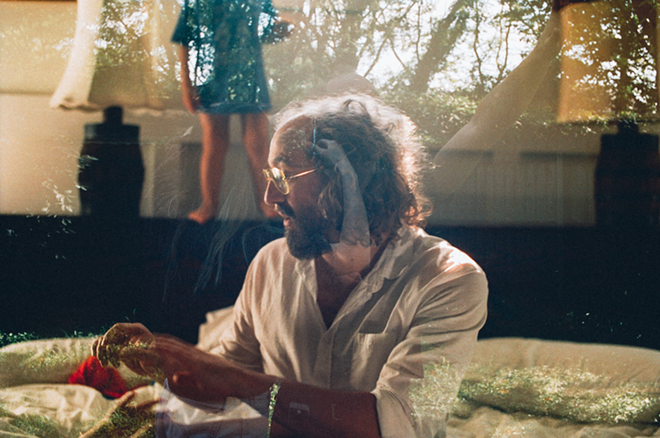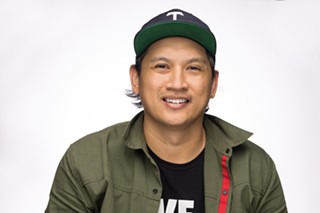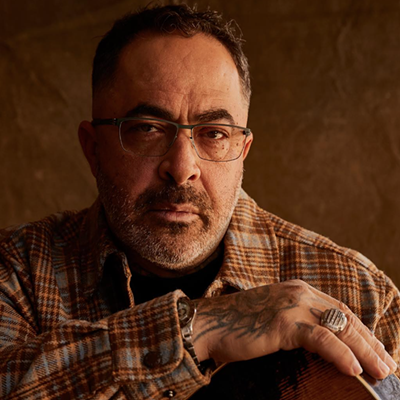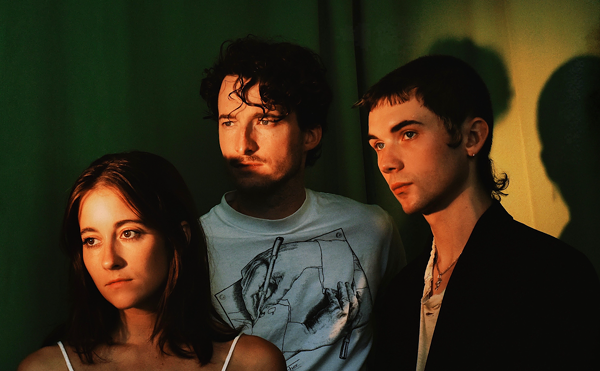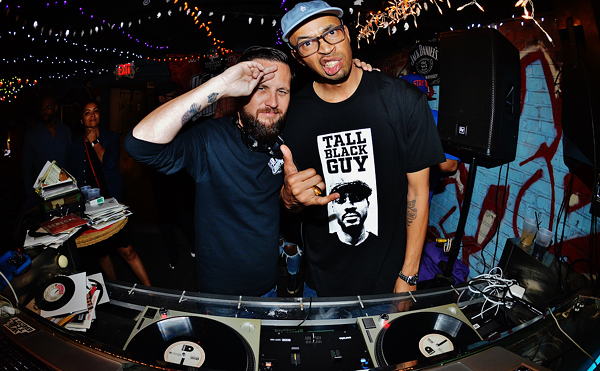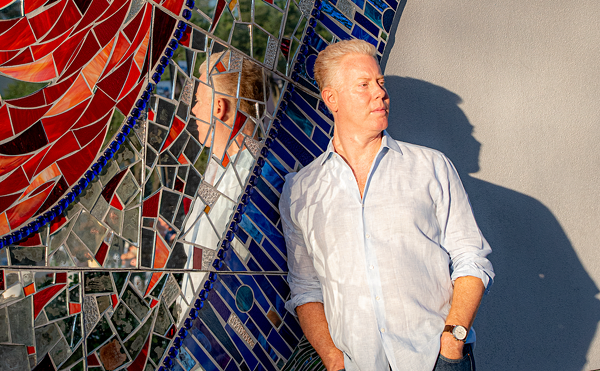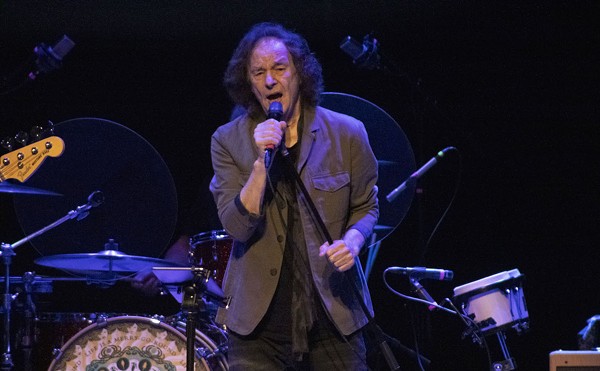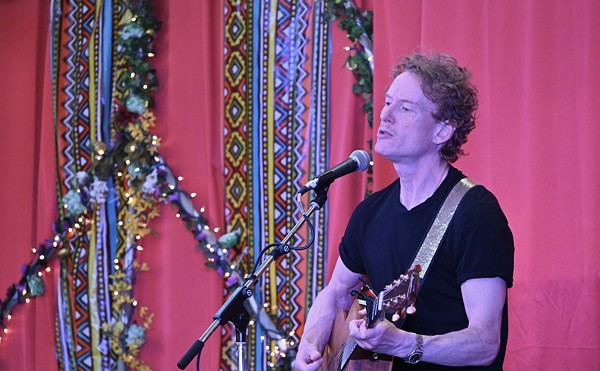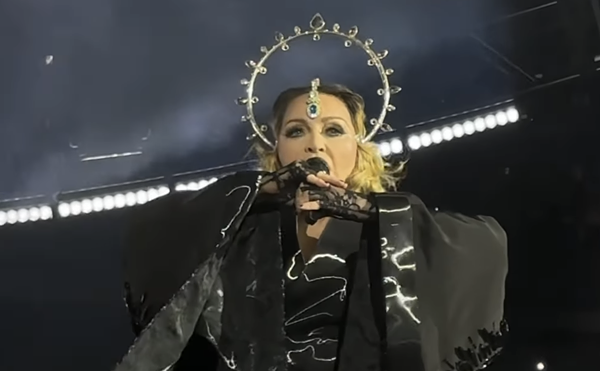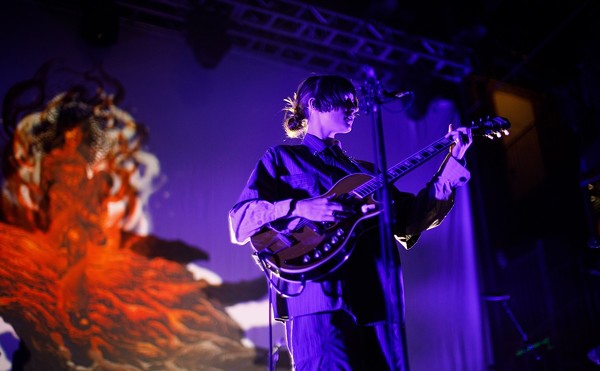It’s not the easiest thing to notice after two minutes of joyous conga, bright hooks and rollicking piano, but there’s a special sample tucked into the quiet bridge of “New Birth In New England.”
The sound is a faint, watery pattern backed by a stacked, almost choir-esque vocal. In many ways, the passage — an odd deviation from the rest of the track off Phosphorescent’s 2018 album, C’est La Vie — is the driving force of Matthew Houck’s first collection of new music since a breakout 2013 LP, Muchacho. The sample is a recording of a sonogram, and the rhythm belongs to the beating heart of Dove, the daughter who was born to Houck and his wife, songwriter Jo Schornikow, before the couple moved from New York to Nashville in 2015. Dad, as expected, is not worried about Dove coming for royalties when she gets older.
“She can can have ‘em,” Houck, 38, told CL, laughing.
The Alabama native’s love for his children (he and Schornikow, the keyboardist in Phosphorescent, have had a son since) is poignantly painted all over C’est La Vie, and not in a cheesy way. On “New England,” he and Schornikow — who’ll play songs from her new solo album, Secret Weapon, at Orpheum as opener for the band’s first Bay area headlining show since a 2008 set at the old location of New World Brewery — are crying tears of joy in a medical basement. Three songs later, the family is on a beach in Schornikow’s native country, Australia, where Houck is spending a holiday break being unable to escape the reality of mortality.
“Some say that Jesus had a daughter, but I don’t guess he ever met her… she had never met her father, I guess this world couldn’t let her,” Houck sings. His voice is being filtered through a vocoder on the song, which creates an effect that’s just as dizzying as the paradoxical pain of loving a thing so much that it hurts to think about losing it. A few seconds later, Houck’s Dove has become a dragon, and he’s asking her to visit him beneath the lights of the tiki bars. The lyrics are gorgeous, sullen and edifying at the same time. Houck hasn’t had to delineate death and dying for his kids yet, but he knows the topic will have to be reckoned with at some point.
“Not as it as it relates to them specifically, but just as it relates to being a human,” he said. “It’s just this fundamental thing. It’s going to happen to all of us. It is as heavy as it gets.”
That kind of existential, emotional, weight has been a hallmark of Houck’s music since Warm Records released his 2003 debut, A Hundred Times Or More. It followed his music as the heavy-handed vision wobbled over to a different label, indie fan favorite Dead Oceans, and it remained no matter how twangy (a 2009 covers record, To Willie, is a must-listen) or experimental Phosphorescent got (808 patterns and dubbed-up echoes appear on Muchacho alongside ambient tones and grizzly textures). Doubt is never part of the creative process for Houck, but questions do start to creep into his mind as the release of a record starts to become a reality. His tendency to sculpt a record’s aesthetic for a long time often dulls the sentiment of a sound to the point where it starts to feel like nonsense. Sometimes he’d wonder if anyone really cared to hear what he had to say at all.
A lot of times that can happen, it just sounds like this alien thing,” he said. “You really can start to wonder if it has any meaning whatsoever.”
Hearing Houck talk openly about uncertainty is refreshing. For a while, he released albums and kept their origin stories close to the vest. He hasn’t grown more comfortable with talking about his personal life, but releasing a straight-forward album that’s resonated with an expanded audience has forced Houck to explain its inception to more nosy journalists than ever before. Opening up has gotten easier in the way that anything becomes more effortless with practice.
“This might completely change a year from now, but I don’t want to be more guarded or protective of my personal life,” he said. “For now, I kind of do feel able to be accepting of the fact that it’s just a life. It happens to be mine.”
And fans win when Houck does that, especially on “My Beautiful Boy” where lyrics about love and adoration still find him thinking about dying, but in a different way.
“They say that heaven ain’t so bad, but for heaven’s sake now ain’t it sad,” Houck sings before wondering what he might actually do if he got there. “Just what in heaven would I do? Just walk around and look for you, and what if I wasn’t there, my beautiful boy?”
That number was almost left off C’est La Vie for the fear that it might be too sappy or overtly direct, but fans have been responding by telling Houck that they love the cut. Houck’s instinct has betrayed him a couple times in the past, and he admittedly still doubts the inclusion of the song, but he’s happy that “My Beautiful Boy” is resonating. Houck is also pleased that the addition of two new little lives has allowed him to take a break from internalizing everything.
“You have to look at things in a slightly altered way, via these external little people,” he said about life with the kids, who’ll be with him and Schornikow on Phosphorescent’s Florida tour. “It’s trusting what you’re doing and then just riding it on out, you know?”
Phosphorescent w/Jo Schornikow. Thurs. May 2. 7 p.m. $25-$30. axs.com. Read a full Q&A with Houck here.
Follow @CL_tampabay on Twitter to get the most up-to-date music news. Subscribe to our newsletter, too.

